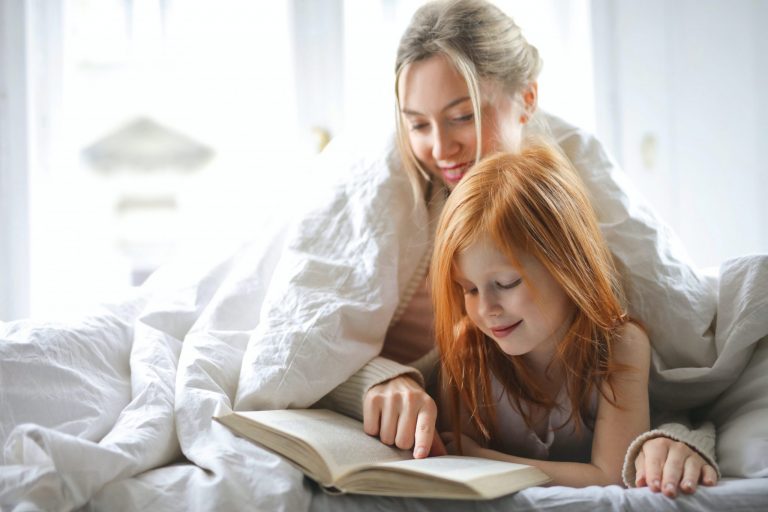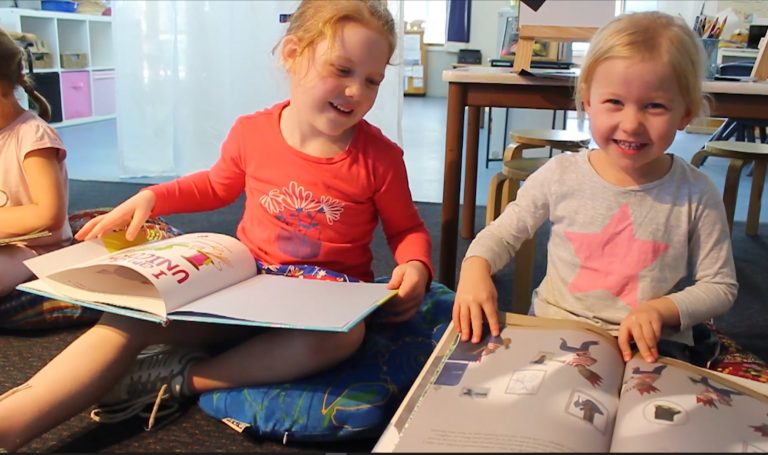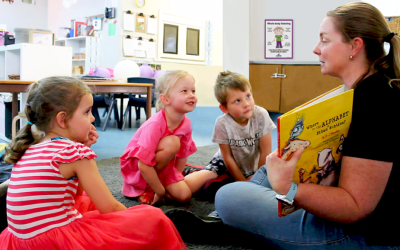Simple and enjoyable – reading to children regularly and often makes a real difference to their language, cognition and reading skills at later ages.
Let’s take a few minutes to reflect on the benefits of reading books with children. Early childhood educators as well as parents, grandparents and carers should not underestimate the many benefits of shared book reading with children. After finishing reading this blog post you will be in no doubt that it will be 10 minutes well spent every time you pick up a book and read it with a child or group of children!
Reading – a skill for life
Reading and sharing books together will help children to develop a love of books to last a lifetime. What a wonderful gift to give to a child!
Reading helps to teach children new vocabulary and language and develop their communication skills. Reading and stories expose children to ideas, concepts and events that they may not experience in their everyday life. Reading together can help spark curiosity in new subjects and topics and an interest in learning.
Sharing stories doesn’t mean you have to read. You can look at textless books or you can use the pictures in the books to make up new stores. It is also important for children to observe adults reading and enjoying books.

The benefits are awesome
There are some good studies that clearly demonstrate the importance of adults and children reading together and the clear links with future schooling outcomes.
Regular and frequent reading to children at a young age has a positive impact on language and reading skills at later ages. The researchers found that reading 6-7 times per week when children are young, has the same positive effect on a child’s reading skills at 4-5 years as being 12 months older! That is really giving children a great head-start isn’t it? This same study found that reading frequently to children has benefits regardless of the family and home environment.
For Educators, reading with children everyday will help you meet Outcome 5 Children are effective communicators of the Australian Early Years Learning Framework.
School readiness
On school entry it is important that children can:
- hold a book the right way up
- handle books with care
- know where the story starts and where it ends
- be familiar with the meaning of concepts including title, author, illustrator and pages
- look at a book page by page
- recognise that spoken words are represented in written language by specific sequences of letters
- understand that words are separated by spaces in print
- track words from left to right
- Kalb and J.C. van Ours. (2012). Reading to young children: a head-start in life.

These ‘concepts of print’ can be easily taught to children when you read to them regularly. It is also important for children to have access to books that they can look at on their own. Try to ensure there are a range of books including fiction and non-fiction and even magazines.
The Sounds good to me online courses for early educators, family daycare providers and parents include a range of activities and resources to make your reading time even more effective. Find out more here.

